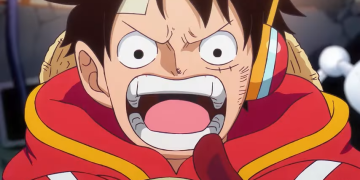Four episodes into Lee Min Ho`s newest series, ‘Pachinko’ and the drama seems to have upset some viewers. Based on the novel, Pachinko is a historical fiction K-drama that narrates the story of a Korean immigrant family who flees their village in order to seek refuge in Japan.
The drama is essentially set in the backdrop of war. It is set during the time when Korea was annexed by Japan and the entire world was on the brink of the second world war. The story of Pachinko begins with the lives of a couple from the small village of Yeongdo, stricken with poverty. They decide to establish a lodge to make ends meet and take in refugees like themselves. Soon their son Hoonie marries a beautiful woman named Yangjin. The second generation continues to look after the small but successful businesses built by their parents.
Alas, Hoonie was a crippled man and he soon succumbs to the face of death. He leaves behind his wife and a daughter named Sunja (played by Min Ha-Kim), who is only 13 years old at the time. Following this is a tale of suffering and agony as Sunja falls in love with a married man and ends up pregnant. This man- Hansu (played by Lee Min-ho), refuses to wed Sunja but is willing to aid her financially as his mistress.

Historical inaccuracies:
Unwilling to tarnish her reputation in society, Sunja continues to struggle until she meets another man named – Baek Isak. They eventually exchange marriage vows in Osaka, Japan, and give birth to a son named NOA. It is at this time that the world witnessed the beginning of the second world war and the Korean immigrants were subject to constant injustice and discrimination. The Japanese government ordered everyone, including the Christians to offer their prayers and pay their respects to the Emperor. The government required them to participate in the weekly ceremonies held at the Shinto shrines and worship their king. Any resistance to this law resulted in imprisonment and extreme torture.
The story of Pachinko highlights this law and depicts Sunja’s husband being arrested due to the disobedience of such laws. In an attempt to rebel, his men offer the lord’s prayer at a shrine leading to the detainment of all of them. The starved and highly tortured Isak is ultimately set free only on the verge of death.
It is this arc that has mainly been deemed as ‘Historical inaccuracies.’ The issue has been brought up primarily by the Japanese fanbase. They claim that there hasn’t been such a gruesome occurrence in history by their government. Japanese fans refuse to accept the truth about their past and have criticized the drama for being ‘Historically inaccurate.’ The drama contains certain graphic and disturbing scenes that have added to the fan’s opinions.
Fan’s response:
However, the rest of the viewers seem to have a different approach to the issue. They have condemned the Japanese fans for not being aware of their actual history. They believe that there are no such ‘Historical inaccuracies’ in the drama and that it is only the truth. Fans have also disregarded Japanese history textbooks. They have mentioned that the books do not contain any references to real history.
They believe that the Japanese are trying to escape from their actions and that proper awareness is lacking among the youth. Fans have accepted the story of Pachinko as it is – raw and real. They do not want to turn their backs because of mere ‘Historical inaccuracies.‘
Rather, viewers are praising Pachinko for the heavy emotions it is portraying. Highlighting the suffering and the lives of the refugees of war touched many hearts. The drama is like no other and is a must-watch whether one is into historical fiction to not. It sheds light on numerous issues and most of all are educational.
Let us know what you think about the ongoing debate with respect to the ‘Historical inaccuracies’ portrayed in the drama. Which side of the coin are you on?!
Never miss an update and keep up with more news and information on Pachinko, read about all of it here!





